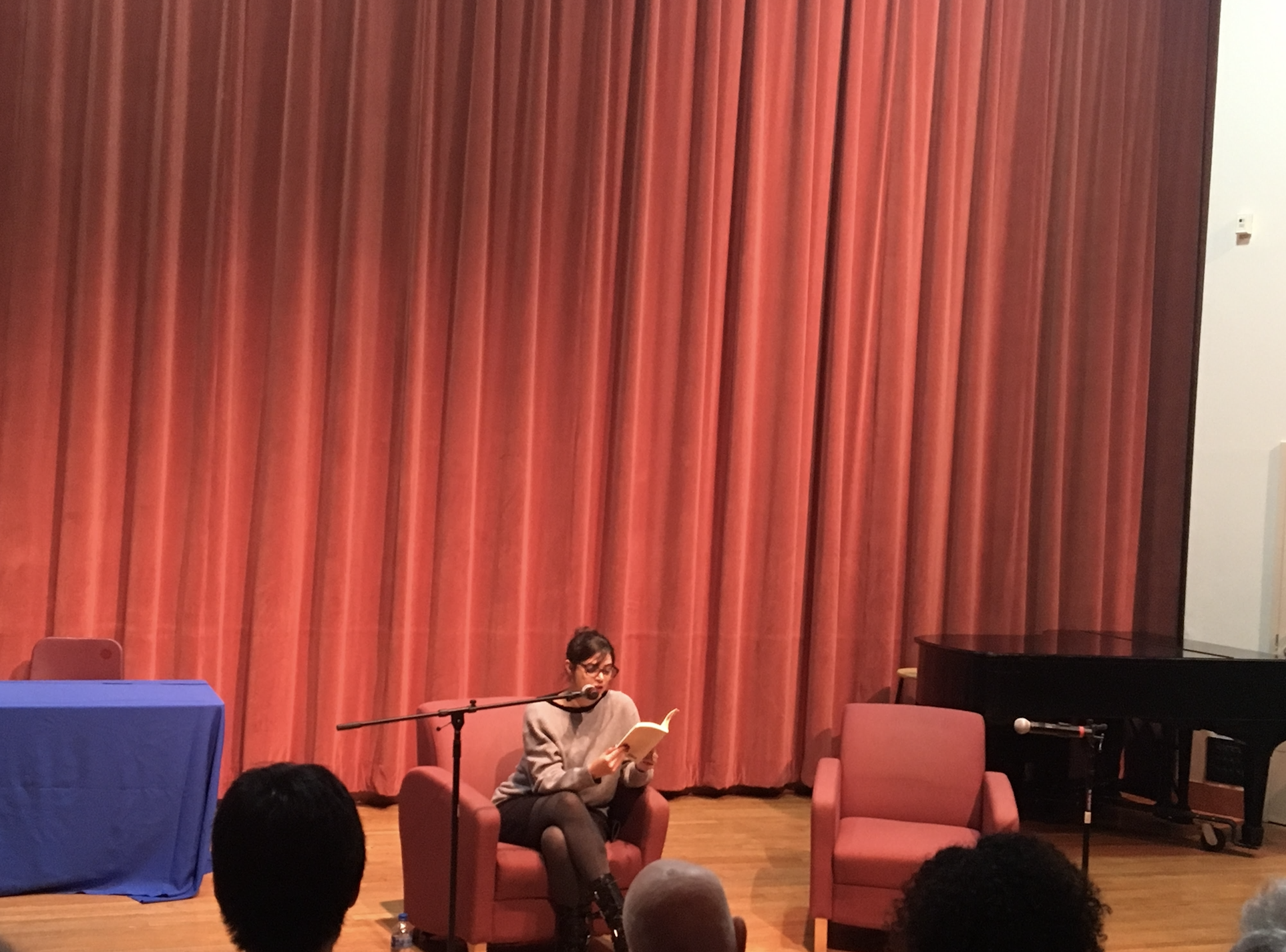On the night of an impending snowstorm, students, faculty and Queens College alumni gathered together at the LeFrak Concert Hall to listen to award-winning Mexican author Valeria Luiselli read from her most recent book, “Tell Me How It Ends: An Essay in 40 Questions.”
As part of the Kupferberg Center for the Arts Evening Readings program, Luiselli was introduced by a student in Queens College’s Master of Fine Arts in Fiction program. After telling the audience about the inspiration behind her book, she read aloud an excerpt. “Tell Me How It Ends: An Essay in 40 Questions,” received a Kirkus starred review and was nominated for a National Book Critics Circle Award for Criticism.
Luiselli was working as a volunteer interpreter in New York City’s federal immigration court, where she worked with unaccompanied and undocumented children fleeing Central America who were seeking asylum and similar visas to remain in New York.
She had to ask children a series of forty questions, as mandated by the American Immigration for Lawyers Association. Her role was to translate the answers of these children from Spanish to English, and then compile it so that lawyers would be able to understand it and best defend these children in court.
Some of the questions that she had to ask were: “Why did you come here? When did you get here? How did you travel here?” Luiselli noted the difficulties of asking young children, around the age of 5 or 6 to answer these questions. “It is easier to build a case if the children are older, maybe around the age of 8 years old, and can articulate a story. Children fleeing from these countries at the ages of 5 or 6 might not know that their experiences in their home countries were bad if that is all they were used to,” Luiselli said.
Luiselli knows what it feels like to move from country to country. She was born in Mexico City, learned English at age five in South Korea, grew up in South Africa, spent her early 20s in Mexico City, and lived in Costa Rica, India, Spain and France. She currently resides in Harlem and teaches literature and creative writing at Hofstra University.
I asked Megan Pindling, a student in her first year in the Master of Fine Arts in Fiction Program, what brought her out to the evening reading and her thoughts on Luiselli’s work. Pindling said, “I read her non-fiction essay last semester for class, and her work is extremely relevant to be read right now.”
Classmate Nadia Misir, also in her first year in the Master of Fine Arts in Fiction Program, said, “I think it’s important to think about the power of stories. We are living under an administration that manipulates news and stories, and Luiselli is providing counter-narratives. Her books are about questioning, and we need to do more questioning in this day and age.”
After Luiselli finished reading her excerpt, she answered questions from the audience. One audience member brought up how Luiselli once said that translating her works from Spanish to English is like “creating versions rather than translations.” Luiselli laughed and expressed that she wishes she hadn’t said that, but instead said that “translating works is similar to that of creating a filter for your works and realizing what is superfluous in your writing.”
Sara Ging, a first year student in the Master of Fine Arts in Translation program, was interested in listening to Luiselli’s experience of translating her own works. Ging said, “As a translator, it is interesting to hear about self-translating. Thinking about the creative process and how she describes it as both a different version of the book and a filter that makes you realize what is superfluous in your writing is very interesting to note for both writers and translators.”
Luiselli uses her writing to provide insight on a relatively unknown perspective of immigration issues, especially by giving a voice to those who can’t speak for themselves.














